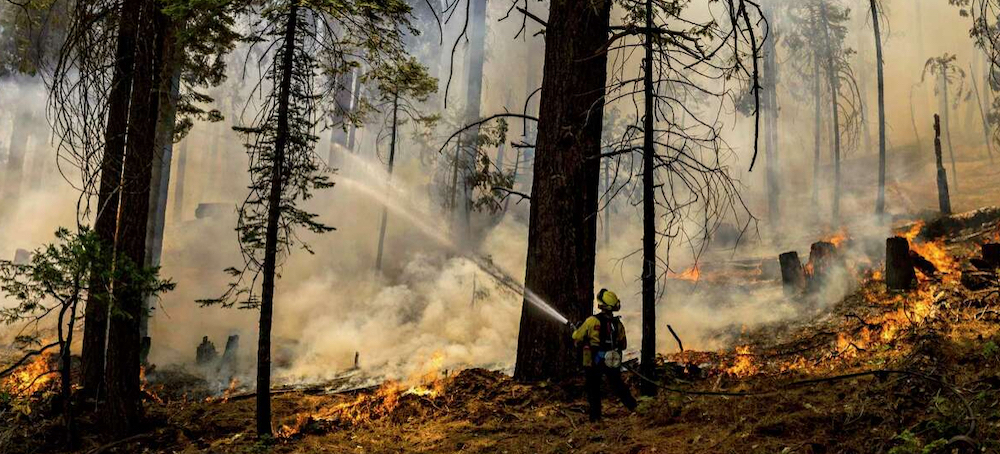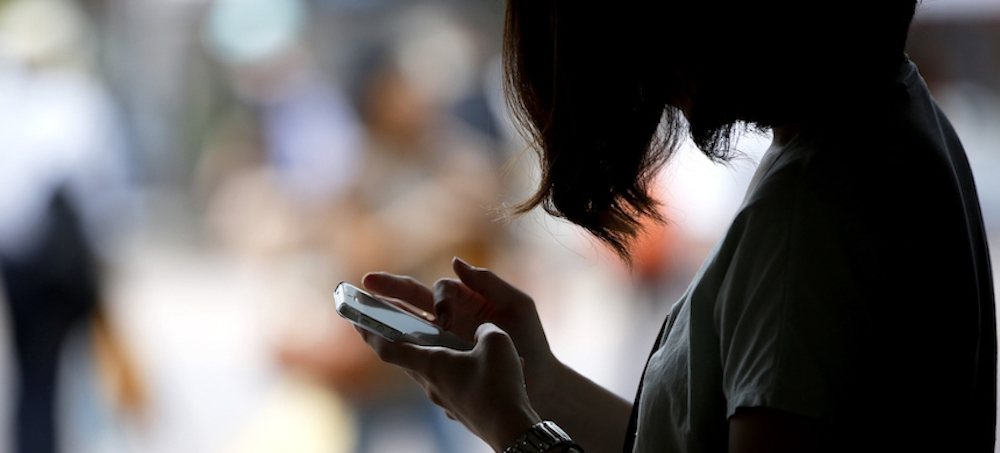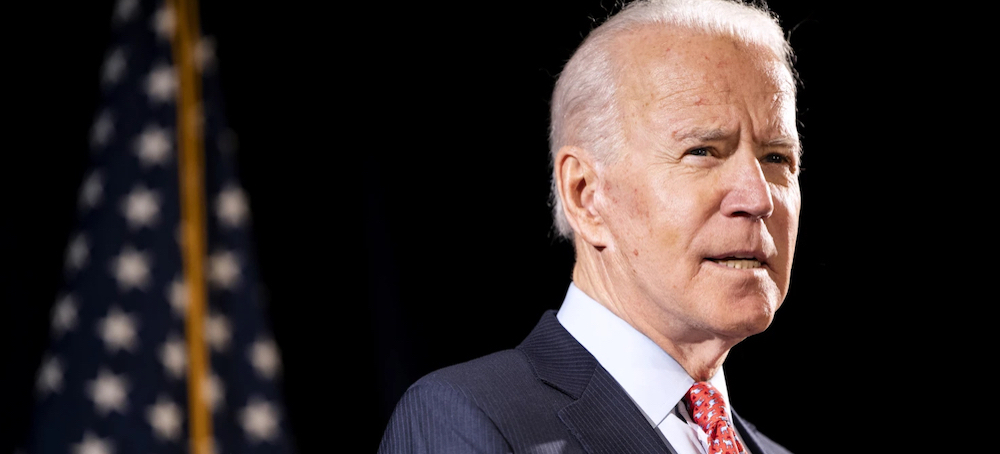Live on the homepage now!
Reader Supported News
Stop pretending your continued Twitter presence will save the platform from Elon Musk.
The early returns are already foreboding. As he closed the takeover Thursday night , Musk fired much of the company’s established leadership, which was predictable and in line with his stated stewardship principles: the teardown of Twitter’s content moderation (he did reassure advertisers that the site “cannot become a free-for-all hellscape”), and yes, the reinstatement of Donald Trump (though it seems that won’t be in the cards just yet). We’re in the end game now, baby. All gas, no brakes. Some of the most prolific and popular right-wing posters on the internet are celebrating Musk’s ascension as a long-awaited victory. At last, they have a guy in the chair who will finally repeal all of that so-called liberal censorship (read: the permabans handed out to various influential white nationalists), which, according to guys like Tucker Carlson and Glenn Greenwald, has desecrated the sanctity of cyberspace. High-profile #Resistance posters, on the other hand, are gearing up for the fight of their life. To them, the Twitter that they know and love—this oppressive economy of arguments, invective, and nuclear takes that seems to leave everyone elementally dissatisfied after more than five minutes of exposure—is worth dying for. The way they’re talking, you’d think Thanos had just landed on Earth.
And so on, and so forth. Look, I think most people outside of the Joe Rogan electorate aren’t happy that Musk has wrested control of Twitter. It is generally discouraging to consider how so many prominent social media companies now possess a distinct MAGA verve; Ben Shapiro operates one of the most popular pages on Facebook, YouTube has long played host to a variety of xenophobic content creators, and we have plenty of evidence about how platformed hate can ruin the lives of ordinary people. Elon Musk might not be a full-blooded MAGA creation, but he is representative of a certain type of grumpy, increasingly reactionary Silicon Valley curmudgeon, and if he wants, he can now serve as judge, jury, and executioner of everything that passes through the Trending page. That said, I do encourage my fellow concerned citizens to consider the implications of what they’re saying, as they eagerly sign up for an apocalyptic culture war for the purity of Twitter. Yes, you could flex your insubordination by (I guess?) continuing to tweet, indefinitely, in the exact same way we have been for the previous decade. Or you could recognize a much more sensible truth. Twitter is fundamentally transient and low-value. You can leave the platform, at any time, with your life completely unafflicted. There is no bravery in sticking around; that persistence won’t add anything in the aggregate. In fact, most people wouldn’t even notice you were gone.
This truth has become elusive since 2016, when everything in the American purview—from football teams to internet forums—became refracted by an intense partisan light. Donald Trump used Twitter as the pulpit for his presidential term, spawning a whole legion of liberal movers-and-shakers who aimed to counter his malapropisms with charged, clout-thirsty tirades of their own. (Remember Eric Garland? Man.) Suddenly, tweeting was no longer a venue for dumb jokes or restaurant recommendations; no, it had become activism. This, I think, was the moment that snapped the tripwire of our reality. Yes, social media has been a vector of some genuinely positive social change, particularly for disenfranchised populations. (Think about how Black Lives Matter found real, seismic power in the summer of 2020.) But by and large, there is no code of honor in posting on the internet, but we somehow managed to elevate Twitter into a keening fixture of our political environment—something that is debated in Congress and scrutinized by regulators, something that people are willing to go to the mat to save from the clutches of Elon Musk.
So let me remind you of a few key points that have been lost in the shuffle. Twitter is a private company that provides a consumer service. If that service becomes dysfunctional or mangled under new ownership, you—yes, you—wield the market power to take your business elsewhere. Regardless of the way the polarities of the platform might entrench you on one side or the other, you do not owe Twitter anything. (Thank God for that!) Another key point: If you are a veteran of the internet, you have likely been putting your thoughts on an untold number of websites over the years. Myspace, Friendster, the replies of long-deleted forum threads, the comments of defunct Tumblrs; they each bloomed and died like clockwork, because the internet is founded on atrophy. If there is to be a mass exodus from Twitter as the site falls into Muskified disrepair, then that will be a tale as old as time, or at least IRC chats. Fear not. Somewhere out there, mired in the void of cyberspace, you will find a place to post again. Whatever pleasures you got from Twitter will not be lost forever.
So please, set aside the calls to action; steel yourself from the desire to screenshot a treacly Notes App missive about your decision to post against the grain. You don’t need to fight anymore. Honestly, you never did. If there is ever a time to recognize that Twitter, at its core, is nothing more than a technology asset bandied about by hyper-oligarchs who have no sensitivity for all the misguided emotional stakes we’ve poured into the website over the years, then surely, a $44 billion price tag from Elon Musk is our moment of clarity. Nothing we tweeted ever mattered that much. That isn’t a tragedy; it’s a relief.
READ MORE Agricultural products were Ukraine's primary source of export revenue, and accounted for nearly 10% of the country's GDP. (photo: Fadel Dawood/Getty Images)
Agricultural products were Ukraine's primary source of export revenue, and accounted for nearly 10% of the country's GDP. (photo: Fadel Dawood/Getty Images)
Cargo ships carrying 354,500 tonnes of grain, the most shipped in one day since Ukrainian exports resumed, set sail on Monday, October 31.
Russia suspended the deal on Saturday after what it said was a major Ukrainian drone attack on its naval fleet in annexed Crimea. Despite Moscow’s decision, cargo ships set sail carrying 354,500 tonnes of grain, the most dispatched in one day since the programme began in August.
Turkey, which helped broker the agreement, remained committed to the deal.
“Even if Russia behaves hesitantly because it didn’t receive the same benefits, we will continue decisively our efforts to serve humanity,” Turkish President Recep Tayyip Erdogan said.
Turkish Defence Minister Hulusi Akar told Russian counterpart Sergey Shoigu on Monday that Moscow should re-evaluate the suspension of its participation.
In a phone call between the two ministers, Akar told Shoigu it was extremely important for the grain deal to continue, and added it should be implemented separately from the conflict in Ukraine, Turkey’s defence ministry said.
Amir Abdullah, the UN official coordinating the programme, said: “Civilian cargo ships can never be a military target or held hostage. The food must flow.”
‘Risky’ exports
Russia said on Monday that it was “unacceptable” for shipping to pass through the Black Sea security corridor.
“The movement of ships along the security corridor is unacceptable, since the Ukrainian leadership and the command of the Armed Forces of Ukraine use it to conduct military operations against the Russian Federation,” the Russian defence ministry said in a statement.
“Under the current conditions, there can be no question of guaranteeing the security of any object in the indicated direction until the Ukrainian side accepts additional obligations not to use this route for military purposes.”
Russia emphasised, however, that it was not withdrawing from the deal but only suspending it.
The ministry did not say what Russia would do if ships continued to sail the route.
Ukraine has neither confirmed nor denied carrying out the attack on the Crimean base of Russia’s Black Sea Fleet, but says Russia’s navy is a legitimate military target.
Moscow has said the blasts were caused by a wave of sea and air drones.
In July, Russia and Ukraine signed the grain deal, which allowed the resumption of grain exports halted because of the war.
So far, more than nine million tonnes of Ukrainian grain have been exported, and the deal was set to be renewed on November 19.
Food price spike
Ukraine and Russia are both among the world’s largest exporters of food.
After Russia announced it was withdrawing from the deal, Chicago wheat futures jumped 6 percent and corn rose more than 2 percent, raising concerns over global supplies.
“This is an inflationary move, supporting prices of wheat and corn,” one Singapore-based trader said. “Prices have risen, but further gains will depend on how the situation unfolds.”
Hundreds of thousands of tonnes of wheat expected to be delivered to Africa and the Middle East are at risk after Russia’s withdrawal from the deal. Ukrainian corn exports to Europe are also expected to be hit.
READ MORE Ukainian president Volodymyr Zelensky. (photo: Ronaldo Schemidt/Getty Images)
Ukainian president Volodymyr Zelensky. (photo: Ronaldo Schemidt/Getty Images)
The new details show there was a tense moment in the two leaders' relationship, even though Biden then publicly expressed unwavering support for Ukraine and he has only increased US assistance since.
The two leaders had the tense phone conversation on June 15, almost four months after Russia first launched its invasion of Ukraine. Communications between the two have been frequent since the invasion began.
Biden was telling Zelenskyy about a $1 billion military aid package that he had just been approved when the Ukrainian leader started listing all the additional help he needed, the four people familiar with the call told NBC.
This prompted Biden to raise his voice and tell Zelenskyy that he should show more gratitude, NBC reported.
A source familiar with the conversation told NBC that the exchange wasn't heated or angry, but Biden was direct with Zelenskyy.
Biden said publicly after that call that "together with our allies and partners, will not waver in our commitment to the Ukrainian people as they fight for their freedom."
And Biden has only increased his support for Ukraine since the call, as he announced multiple military packages for the country and condemned Russia's actions there.
Administration officials told NBC that the two leaders' relationship has only improved since the call.
Biden said later in June that the US would back Ukraine "as long as it takes," and has made multiple similar comments since.
The US Congress has approved around $60 billion in military, economic, and humanitarian aid for Ukraine, made up of many smaller packages, since Russia invaded.
The US is ranked seventh out of the world's countries by for the amount of money it has given to Ukraine since Russia invaded relative to its GDP, according to the Kiel Institute for the World Economy.
Lawmakers from both sides have been supportive of the aid sent to Ukraine.
However, some Republicans have started argued against sending large sums of money to the country.
READ MORE Smoke from the Washburn Fire near Yosemite National Park's southern entrance in Wawona, California. (photo: Stephen Lam/SF Chronicle)
Smoke from the Washburn Fire near Yosemite National Park's southern entrance in Wawona, California. (photo: Stephen Lam/SF Chronicle)
The effects of global heating could soon reach a tipping point, but scientists fear that the meeting in Egypt will become bogged down in recriminations
Examples include this summer’s record high temperature of 40.3C in the UK, a massive jump of 1.6C on the previous hottest day; torrential rains that triggered the most severe flooding in Pakistan’s recent history; and last year’s Hurricane Ida, one of the most destructive storms to have struck the US.
It is not that global temperatures have risen faster than expected. The problem is that the effect of this rise has been unexpectedly extreme.
“Many of the impacts of climate change such as increased weather extremes are now playing out faster than predicted, even though the warming itself is very much in line with model projections,” said the American climatologist Michael E Mann, of Pennsylvania University.
This point was backed by Johan Rockström, director of the Potsdam Institute for Climate Impact Research in Germany.
“Without doubt, extreme weather events, amplified by global warming, are coming faster than predicted and are more severe than predicted. The impacts are there to see: the disastrous floods in Pakistan; the failure of the rainy season in Somalia for the past four years; and highly destructive wildfires in California,” he said.
These unanticipated events are occurring in a world that is currently 1.2C hotter than it was in pre-industrial times and temperatures are likely to continue to rise considerably despite nations pledging at recent IPCC summits to do everything to hold increases to 1.5C.
This figure could be breached in a decade, say scientists. The result will be even worse droughts, heatwaves, floods and disease patterns than those now being experienced.
But that is not all, says Rockström. He and his colleagues have recently published research that indicates that by the time a global temperature rise of 1.5C is reached there would be a significant risk to four major systems. “These systems include the Greenland ice sheet and the West Antarctic ice sheet, which will start to disintegrate,” added Rockström. “The end result will be sea level rises of several metres though that could take many, many decades.”
In addition, the permafrost systems of Canada and Russia would start to thaw and release their vast stores of methane, a greenhouse gas many times more potent and dangerous than carbon dioxide. Finally, at temperature rises of about 1.5C, all of the planet’s tropical coral reef systems would start to collapse, the group found.
“It would mean that we would be handing over to our children and to all future generations, a planet that will be sliding irreversibly towards possessing fewer and fewer places to live,” Rockström said.
The planet is teetering on the brink of meteorological disaster, giving a desperate edge to the opening of the Cop27 climate summit in Egypt next month. The task facing delegates was starkly underlined by the UN which reported last week that the world was now on track for a 2.8C rise in global temperatures. It also accused nations of wasting a year because they failed to deliver ambitious emissions pledges that had been made at the Cop26 summit in Glasgow last year.
This point was stressed by Bob Ward, policy director at the Grantham Research Institute on Climate Change and the Environment. “Climate change is already damaging millions of lives around the world, including the UK, and is an increasing threat to the economic development of poor countries in particular. It is critical that governments at the Cop27 summit recognise that the risks of loss and damage are accelerating.”
Scientists warn that if the world is to have a chance of reaching net zero carbon emissions by 2050 and so prevent the breaching of the 1.5C limit, global emissions will have to be cut by 5% to 7% a year. At present, emissions are rising between 1% and 2% a year with little sign of that increase being halted.
Finding routes to carbon cuts should therefore be a priority for Cop27, scientists insist. However the summit is expected to be dominated by contentious discussions about the compensation that poorer nations believe richer nations should pay them for the impact of climate change. Global heating has been caused by industrial nations that used fossil fuels to make themselves rich. The argument is that they should now reimburse those countries that are suffering from the worst vicissitudes of climate change.
These are known as “loss and damage” claims and they will be a key focus of next month’s summit.
“You can imagine what will happen when the Pakistan delegation presents its claim for compensation for floods that have just put a third of their country under water,” said Rockström.
“You can imagine the number on that invoice. And I think developing countries have a really justified argument in making these loss and damage claims. But it is not going to be a very constructive debate because it’s very difficult to move forward on an agenda item like that.”
This point was backed by Professor Stephen Belcher, chief scientist at the UK Met Office. “At this point, the need for action is clear,” he told the Observer. “There is still time, but my gosh, the window of opportunity is closing fast.”
A year on the frontlines of the climate crisis
California wildfires
The “Dixie Fire” started in Butte County on 13 July, 2021 and burned 963,309 acres before being contained on 25 October. It was the largest single wildfire in California’s history and damaged or destroyed several small towns.
Louisiana’s Hurricane Ida
One of the deadliest and most destructive category 4 Atlantic hurricanes struck the southern state in 2021 and became the second most damaging and intense in its history, behind only Hurricane Katrina in 2005.
South America drought
Wide areas of subtropical South America recorded their driest years on record in 2021. Rainfall was well below average in much of central and southern Brazil, Paraguay, Uruguay and north Argentina, leading to major agricultural losses.
Britain’s hottest day
Space photos showed the UK turned from green to brown as temperatures exceeded 40C for the first time on 19 July. This beat by 1.6C the previous record of 38.7C that was set in 2019. The above image shows parched ground in London’s Greenwich Park.
Horn of Africa drought
The lack of rain that affected Somalia and other Horn of Africa nations for the past five years has created a drought so severe that the lives of hundreds of thousands of people are now threatened, aid agencies have warned.
Henan province floods
Zhengzhou, the Chinese province’s capital, had 8in of rain in a single hour on 20 July last year, the highest recorded level since measurements began in 1951. The resulting floods caused the evacuation of 815,000 people and affected 14.5 million people around the province.
Pakistan floods
At least 1,600 have died and more than $30bn of damage and loss has been caused since floods started in June. Housing, agriculture, livestock, transport and communications all suffered. “I have never seen climate carnage on this scale,” said UN secretary general António Guterres.
READ MORE A woman uses her phone. (photo: Getty Images)
A woman uses her phone. (photo: Getty Images)
ALSO SEE: Top European Official: If Twitter Ignores the Law,
Penalties Will 'Haunt' Elon Musk
Since the billionaire took control of the influential social media platform on Oct. 27, users, researchers and the company's own employees have been warning that trolls and other malicious actors are testing Twitter's limits, apparently emboldened by a new owner who has vowed to loosen its guardrails in the name of free speech.
The incidents are raising particular alarm given that Americans are in the final days of voting in November's midterm elections, putting government agencies, civil society groups and social media companies on edge over the circulation of false information and hateful rhetoric that is fomenting real-world violence.
Musk himself inflamed those concerns on Sunday when he tweeted a link to unfounded, homophobic allegations about the violent attack on Paul Pelosi, the husband of Democratic House Speaker Nancy Pelosi.
Replying to a tweet from Hillary Clinton about the attack, Musk wrote: "there is a tiny possibility there might be more to this story than meets the eye." He included a link to an article from the Santa Monica Observer, a fringe website with a history of publishing false stories, which makes lurid claims about the attack without evidence.
Musk, who has more than 112 million Twitter followers, deleted the post hours later, but not before it had been retweeted and liked tens of thousands of times.
His tweet heightened fears that Twitter is headed into a new era of toxicity under Musk, who has fired the company's top leadership and dissolved its board, naming himself sole director.
The billionaire Tesla CEO has long used his Twitter account to provoke, joke and troll. His posts take on a new significance now that he owns and controls the platform, however.
Yael Eisenstat, a former Facebook official now at the Anti-Defamation League, tweeted that for Musk to amplify an unfounded rumor "days after claiming to advertisers that he's going to be a responsible leader, all I can say is: I'm not overreacting by expressing my concerns." She was referring to an open letter Musk wrote to advertisers last week pledging that Twitter would not become a "free-for-all hellscape."
"Actions always speak louder than words," Eisenstat wrote.
Musk and Twitter did not respond to requests for comment.
Coordinated campaign of racist tweets tests Musk's control
Musk is a self-described "free speech absolutist" who has criticized Twitter's restrictions on hate speech and misleading claims about elections and public health. He has previously said he thinks the platform should allow all legal speech. He's also said he opposes permanent bans and would reinstate banned accounts including that of former President Donald Trump, who was kicked off after his supporters stormed the U.S. Capitol on Jan. 6, 2021.
On Friday Musk clarified that he has made no changes to Twitter's rules yet. He would not make any "major content decisions or account reinstatements" before convening a "content moderation council with widely diverse viewpoints," he said.
But many on Twitter and other internet sites greeted news of his ownership as a signal that the old rules were gone.
"Elon Musk has said enough on Twitter even before his takeover to make people believe that he is on the side of saying whatever you want without consequences," said Sara Aniano, disinformation analyst at the Anti-Defamation League.
In the first 24 hours after news broke that Musk had closed his $44 billion purchase, more than 1,200 tweets and retweet spread antisemitic posts and memes, according to the ADL's analysis. In the following days, they've been posted thousands more times.
The ADL said the surge was being driven by a coordinated campaign on internet platforms popular with the far right, including 4chan, an anonymous message board that has generated previous harassment and trolling campaigns, and the messaging app Telegram.
"There were specific guidelines on 4chan on what to do, how to do it, and why they were doing it. And they were doing it to indoctrinate more users into their rallying cry against the Jews," Aniano said.
Users of 4chan also encouraged each other to amplify derogatory slurs, according to the Network Contagion Research Institute. It found use of the n-word increased 500% immediately following Musk's purchase.
According to data from Dataminr, a company that analyzes social media activity, use of several racist and homophobic slurs increased in the hours and days after Musk took control. Tweets and retweets containing the n-word were being posted more than 2,300 times an hour at the peak on Friday, the data showed.
Twitter's head of safety and integrity, Yoel Roth, also warned of coordinated efforts to proliferate hateful posts and said the platform was banning users involved in the trolling campaign.
"Over the last 48 hours, we've seen a small number of accounts post a ton of Tweets that include slurs and other derogatory terms," he tweeted on Saturday evening, noting that just 300 accounts were responsible for more than 50,000 tweets using one slur.
"Bottom line up front: Twitter's policies haven't changed," Roth wrote. "Hateful conduct has no place here. And we're taking steps to put a stop to an organized effort to make people think we have."
READ MORE Trump and his allies nationally and in Arizona have urged supporters to monitor outdoor drop boxes. (photo: Andrew Selsky/AP)
Trump and his allies nationally and in Arizona have urged supporters to monitor outdoor drop boxes. (photo: Andrew Selsky/AP)
Intimidation, threats and coercion violate federal Voting Rights Act, the department wrote in a brief filed Monday
The department said such “vigilante ballot security measures,” including filming voters at drop boxes, probably violates the federal Voting Rights Act.
“When private citizens form ‘ballot security forces’ and attempt to take over the State’s legitimate role of overseeing and policing elections, the risk of voter intimidation — and violating federal law — is significant,” the department said in a “statement of interest” filed in the case.
The League of Women Voters alleged that several organizations planned “widespread campaigns to surveil and intimidate Arizona voters at ballot drop boxes and baselessly accuse them” of voter fraud.
The drop boxes, intended to provide a secure, convenient place to submit ballots, have become a symbol of mistrust in elections among many supporters of former president Donald Trump.
Trump and his allies nationally and in Arizona have urged supporters to monitor outdoor drop boxes, an outgrowth of the discredited film “2000 Mules” that claims drop boxes were stuffed with fraudulent ballots during the 2020 election.
News of the Justice Department filing with its strong language about voter intimidation was welcomed by voting rights advocates, and Arizona officials who have been increasingly alarmed by outside groups congregating around drop boxes and recording videos of voters and their vehicles.
“To have folks standing outside of drop boxes, armed in tactical gear, with body armor, that is unprecedented,” said Bill Gates, the chair of the Republican-led Maricopa County Board of Supervisors. The filing, Gates said, showed “that there is a limit — there’s a balance between the First Amendment rights that people have and also the right that people have to not feel intimidated when voting. That point was made very strongly.”
The Arizona lawsuit is one of many claims from battleground states that voters are being intimidated when they place ballots in drop boxes. Arizona Secretary of State Katie Hobbs (D) referred a report of voter harassment at drop boxes to the Justice Department on Oct. 20. Attorney General Merrick Garland last week stated that the department “will not permit voters to be intimidated” during the midterm elections.
But Monday’s filing marks the first time this election cycle that the department has entered an ongoing case involving drop boxes in this way. The department specifically made reference to photographing voters at drop box sites, sometimes by armed vigilantes.
“Video recording or photographing voters during the voting process has long been recognized to raise particularly acute concerns,” the department’s Monday filing said.
The filing comes after a federal district court judge in Arizona, Michael Liburdi, on Friday refused in a related case to block groups from monitoring drop boxes. He said in a case brought by the Arizona Alliance for Retired Americans that there was insufficient evidence to warrant court intervention of an activity protected by the First Amendment.
The department in its filing did not offer a specific prescription in the case but argued that it is possible to craft an injunction blocking threatening activity consistent with the First Amendment’s protection of free speech and assembly.
“While the First Amendment protects expressive conduct and peaceable assembly generally, it affords no protection for threats of harm directed at voters,” the department’s lawyers wrote.
Voting rights advocates applauded the department’s action.
“The filing acknowledges the serious threat that voter intimidation, like we are seeing in Arizona, has to our democracy,” said Jessica Marsden, counsel to Protect Democracy, which filed the lawsuit on behalf of the League of Women Voters.
Danielle Lang, senior director for voting rights at the Campaign Legal Center, said the statement of interest was a strongly worded, significant addition to the case.
“It’s notable that this compelling brief was filed in such a short time frame,” following Liburdi’s decision not to intervene, Lang said.
The League of Women Voters is asking for a court order to ban armed vigilantes from gathering near the drop boxes and a hearing on that request is scheduled for Tuesday.
The hearing comes as one of the defendants in the league’s lawsuit, the Lions of Liberty, has been dropped from the case after agreeing to halt its drop box monitoring program. Luke Cilano, a board member with the Lions of Liberty in Yavapai County, questioned the department’s decision to get involved.
“Why would they be making statements on anything that is a states’ rights issue unless they’re trying to subvert the right of the state?” he said Monday.
Officials in Maricopa County, home to metro Phoenix and the largest voting population in the swing state, have urged voters to contact law enforcement or the secretary of state’s office if they feel uncomfortable while pulling up to the drop boxes to deposit ballots.
The secretary of state’s office reviews the complaints and determines whether they should be referred to the Justice Department and the state attorney general’s office.
State elections officials say they have received more than a dozen complaints about intimidation at drop boxes since early voting began Oct. 12. Through an open records request, The Washington Post received copies of complaints referred to law enforcement.
“I dropped off my ballot at the Maricopa County Recorders office and there were two men filming everyone as they drove through,” one voter wrote in a submission about their experience while voting in downtown Phoenix on Wednesday afternoon. “While this may not be illegal to do, it is very uncomfortable and feels intimidating.”
READ MORE President Joe Biden. (photo: Ryan Collerd/Getty Images)
President Joe Biden. (photo: Ryan Collerd/Getty Images)
A week out from US midterm elections, president pleads with energy firms to invest profits in lowering costs for American consumers
In remarks on Monday, just over a week away from the 8 November midterm elections, Biden criticised major oil companies for making record profits while refusing to help lower prices at the pump for American people. The president said he would look to Congress to levy tax penalties on oil companies if they don’t begin to invest some of their profits in lowering costs for American consumers.
“My team will work with Congress to look at these options that are available to us and others,” Biden said. “It’s time for these companies to stop war profiteering, meet their responsibilities in this country and give the American people a break and still do very well.”
Over the last two quarters, ExxonMobil, Chevron, Shell, BP, ConocoPhillips, and TotalEnergy earned over $100bn more than they earned all of last year, and more than two-and-a-half times what they earned in the same quarters of 2021.
The president took particular aim at ExxonMobil which last week reported earnings of $19.7bn in the third quarter alone. He said the company used its record profits to provide shareholders with hefty dividends and stock buybacks but failed to invest in production improvements that would benefit consumers at the pump.
“Oil companies’ record profits today are not because of doing something new or innovative,” Biden said. “Their profits are a windfall of war, a windfall for the brutal conflict that’s ravaging Ukraine and hurting tens of millions of people around the globe.”
High prices at the pump have exacerbated inflation and have taken a toll on Biden and Democrats’ standing among voters.
In July, petrol prices rose to an average of $4.80 for a gallon of regular. They’ve since fallen to an average of $3.76 nationally, but the White House says they should be lower, given declines in global oil prices over the same period.
“Can’t believe I have to say this but giving profits to shareholders is not the same as bringing prices down for American families,” Biden tweeted on Friday.
Biden has been critical of energy companies’ profits since at least June, when he complained publicly that “Exxon made more money than God this year”.
Biden’s threat of windfall taxes on energy companies follows calls from progressive Democrats, including Bernie Sanders and Elizabeth Warren. Last week, California Governor Gavin Newsom added his voice to the call for Congress to tax the profits of oil companies.
“Crude oil prices are down but oil and gas companies have jacked up prices at the pump in California. This doesn’t add up,” Newsom said on Friday. “We’re not going to stand by while greedy oil companies fleece Californians. Instead, I’m calling for a windfall tax to ensure excess oil profits go back to help millions of Californians who are getting ripped off.”
Congress would have to approve any additional taxes on the energy producers. Some attempts this year to increase regulation of energy companies have stalled in the Senate.
“This is exactly the type of leadership we’ve been waiting for from President Biden,” said Jamie Henn, spokesperson for the group ‘Stop the Oil Profiteering.’ “Big Oil has made nearly $300bn in excess profits this year by gouging us at the pump. A windfall profits tax can provide immediate relief by redirecting that money into the pockets of hardworking Americans.”
Industry groups have condemned the prospect of a windfall tax, with American Exploration … Production Council CEO Anne Bradbury saying it “would likely backfire by further driving up energy costs for American families and businesses.”
“Rather than taking credit for price declines and shifting blame for price increases, the Biden administration should get serious about addressing the supply and demand imbalance that has caused higher gas prices and created long-term energy challenges,” said Mike Sommers, president and CEO of the American Petroleum Institute.
Follow us on facebook and twitter!
PO Box 2043 / Citrus Heights, CA 95611



No comments:
Post a Comment
Note: Only a member of this blog may post a comment.